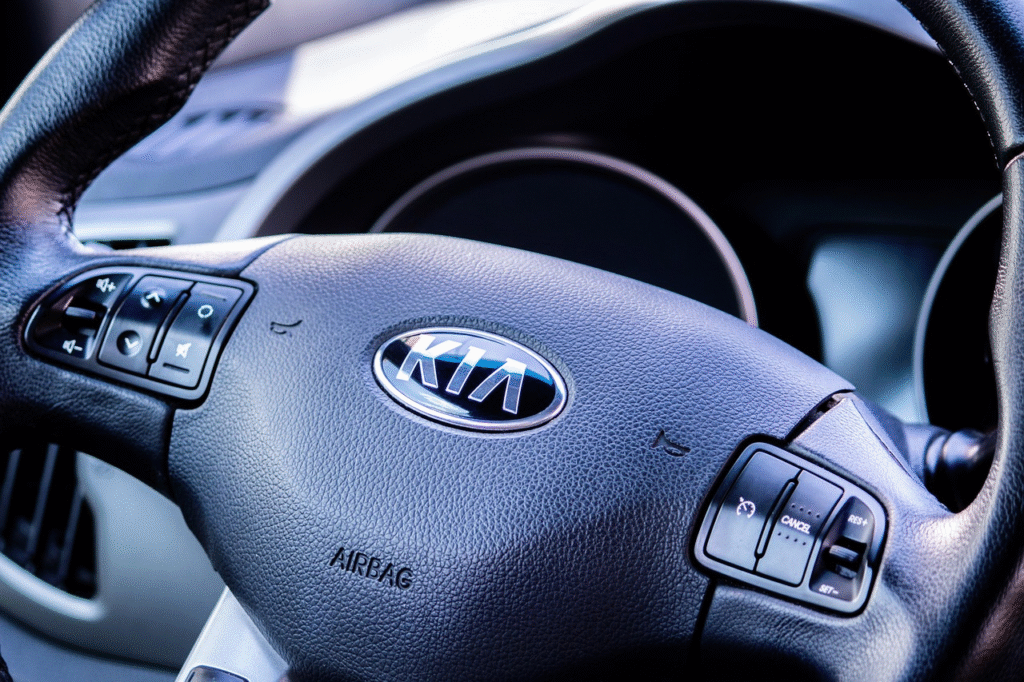Your car doesn’t just get you from point A to B, it also responds to the weather around it. From freezing mornings to scorching afternoons, every season affects your vehicle’s performance, fuel efficiency, and safety. Knowing how climate impacts your car helps you drive smarter and protect your investment.

Cold Weather and Car Efficiency
In winter, your vehicle’s systems slow down. Battery power drops, engine oil thickens, and tires lose pressure, all of which make your engine work harder and consume more fuel. Diesel cars are especially vulnerable, as diesel can thicken and block fuel lines. Even petrol engines may struggle to start and idle smoothly.
For electric vehicles (EVs), cold weather leads to reduced range and slower charging. Cabin heating also drains battery power faster. To maintain performance, preheat your EV while it’s charging, park in covered areas, and use heated seats instead of blasting the cabin heater. Keeping tires inflated and the battery healthy is essential during winter.
Rainy Season Driving Tips
Driving in the rain brings a unique set of challenges. Reduced grip, slippery surfaces, and low visibility increase the chances of accidents. It’s essential to slow down by 5 to 10 km/h, maintain a 4 to 6 second gap from the car ahead, and avoid sudden braking or turning. Never use cruise control on wet roads, it can delay your response time.
To prepare, check tire tread depth, rotate tires regularly, and keep them properly inflated. Replace worn wipers, use water-repellent sprays on your windshield, and always turn on your headlights when visibility drops. These steps improve traction, braking, and overall safety during monsoons.
Hot Weather and Engine Stress
High temperatures affect almost every system in your vehicle. Tire pressure can increase by 2–3 PSI, raising the risk of a blowout. Coolant levels drop faster, and engine components like belts and radiators are under constant stress. Fuel economy can dip by as much as 25%, especially if your AC is overworked or your engine overheats.
Electric cars also feel the heat. Fast charging in high temperatures can age the battery faster. To protect your EV, avoid charging immediately after long drives, park in shaded areas, and use sunshades. For all vehicles, drive during cooler parts of the day, inspect belts and hoses, and keep the AC filter clean.
Smart Travel Prep for Long Trips
When planning road trips, consider seasonal demands on your car.
In winter,
- let the engine warm up before moving.
- Check tire pressure, battery condition, and ensure the heater is working.
- Always pack essentials like blankets, water, a flashlight, and an emergency kit.
During summer,
- drive early mornings or late evenings to avoid peak heat.
- Carry water, coolant, and a working sunshade.
- Check that your cooling system is functioning properly.
For all-weather travel, remove roof carriers to improve fuel efficiency. Top off all fluids, inspect brakes and tires, and avoid carrying unnecessary weight. Regular checks help prevent breakdowns and reduce wear and tear on your car.
EV-Specific Care Tips by Season
Electric vehicles need extra care when the weather swings between extremes. In winter, regenerative braking may weaken, and range drops significantly. Keep your EV charged and warm it up while it’s plugged in. Park indoors whenever possible and keep tires well-maintained.
In summer, while range loss is minimal, heat can still age the battery. Avoid charging immediately after a long drive. Use sunshades and park in cool spots. Clean the cabin air filter to maintain AC efficiency and cabin comfort.
Buying a Used Car? Check for Weather Damage
Weather leaves behind clues. Before buying a second-hand car, inspect it for signs of damage from extreme climates. Look under the car for rust, especially if it came from a snowy region. Check for water stains or musty smells, which may indicate past flood exposure. Make sure the AC, heater, and defogger work well.
In hotter areas, inspect the dashboard and paint for signs of sun damage. Cracked rubber around windows or doors can also hint at prolonged exposure to UV rays. Always review the service history to ensure regular seasonal maintenance. For peace of mind, get the vehicle inspected by a trusted mechanic.
Every season affects your car in different ways. Cold slows it down, heat wears it out, and rain tests your reflexes and grip. Whether you drive a petrol car, diesel, or an EV, seasonal care is key to extending your vehicle’s life, saving on fuel, and staying safe on the road. Regular maintenance, smart driving habits, and a little planning go a long way in keeping your car road-ready all year round.




